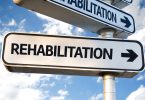There are over 24 million Americans who are diagnosed with post traumatic stress disorder, or PTSD. To put that number into perspective, it’s roughly equivalent to the entire population of the state of Texas!
It is common for sufferers to use or abuse alcohol and drugs in order to cope with the effects of this disorder. If you are among them, and your addiction has spiraled out of control, it’s time to find help. PTSD treatment centers can provide you with the tools to overcome addiction — and to manage your post traumatic stress disorder in a healthy, constructive way.
Who Is At Risk for PTSD?
Many people associate post traumatic stress disorder with veterans of the armed forces. However, it is certainly not restricted to former soldiers. Some of the other demographics that have a higher-than-average incidence of PTSD include:
- Homeless people
- Doctors, nurses, and other medical professionals
- First responders, including police officers, firefighters, and paramedics
- People who have survived natural disasters
- Survivors of traumatic events, such as mass shootings or terrorist attacks
- Domestic violence survivors
- Survivors of rape or sexual assault
Women are more than twice as likely to develop PTSD than men. Not only do women have a higher risk of being sexually assaulted, but sexual assault is more likely to trigger PTSD than many other traumatic events. Lastly, women tend to internalize the trauma, and may even blame themselves for a sexual assault.
Post Traumatic Stress Disorder Symptoms
Post-traumatic stress disorder can manifest itself in a variety of ways. Some of the symptoms can be insidious, making the disorder difficult to diagnose. Common symptoms can include:
- Flashbacks to the trauma
- Insomnia, nightmares, and other sleep-related issues
- Depression and/or anxiety
- Amnesia or memory loss related to the trauma
- Fear
- A feeling of being emotionally numb
- Losing interest in hobbies or activities
- Stress
- Extreme, often disproportionate rage or angry outbursts
- Avoidance of situations that may trigger the PTSD, resulting in loneliness, social anxiety, or difficulty functioning on a day-to-day basis
- Attempting to dull one’s emotions through the use of drugs, alcohol, overeating, impulsive sex, gambling, or other addictive and high-risk behaviors
PTSD and Addiction
The American Psychiatric Association added PSTD to its Diagnostic and Statistical Manual of Mental Disorders in 1980. This recognition has led to improvements in diagnostic tests and treatment methods.
When someone who has been diagnosed with mental illness is also addicted to alcohol or drugs, they are said to have a dual diagnosis. People with unmanaged PTSD or another mental illness frequently turn to drugs as a way to self-medicate. Unfortunately, addiction can worsen an individual’s mental illness, and vice-versa.
Patients with a dual diagnosis (also referred to as co-occuring disorders) therefore require specialized treatment modalities. Integrated intervention, in which both diagnoses are treated simultaneously, is the most effective strategy for helping a patient with addiction and PTSD.
Undergoing Detox at PTSD Treatment Centers
Significant drug or alcohol addiction may require a medically supervised detox program. This is particularly important for PTSD patients, since the disorder can amplify and complicate the symptoms of physical withdrawal. In some cases, medication will be used to ease the withdrawal symptoms.
Detox focuses on the patient’s physical well-being. Once the individual has undergone withdrawal and is deemed physically stable, they are ready to enter PTSD treatment centers. From this point forward, treatment focuses on the ways that addiction and mental illness feed into one another.
Addiction Treatment for People with PTSD
The traditional methods of rehab are not adequate when it comes to treating individuals who also struggle with PTSD. Addiction experts who work at PTSD treatment centers have extensive training in both diseases. They offer integrated approaches that address the underlying symptoms of PTSD as well as the psychological challenges posed by addiction.
In most cases, a combination of modalities works best. These may include psychotherapy and group therapy. Several forms of treatment are often used with PTSD patients. These include Cognitive Behavioral Therapy (CBT), Prolonged Exposure (PE) therapy, and Cognitive Processing Therapy (CPT), among others.
The patient may be placed on a psychotherapeutic medication regimen. Antidepressants and anti-anxiety medications can help control the PTSD, thereby removing some of the temptations of drug and alcohol use.
In addition, PTSD treatment centers provide practical sober living skills. Learning how to cope with stress without turning to substance abuse is vital for dual-diagnosed individuals. Sober living classes might also focus on job skills and job placement, budgeting and money management, and healthy lifestyle habits.
Is an Inpatient Program Necessary?
There are several levels of drug and alcohol rehab treatment. After detox, most patients will enter what’s known as inpatient treatment. These typically last 30 days, but can also last for 60 days, 90 days, or even longer. Inpatient rehab facilities require the individual to live at the facility. There, they can receive round-the-clock support in a safe environment that allows them to focus on their recovery.
Partial hospitalization programs, intensive outpatient programs, and standard outpatient programs are also available. Many people who undergo rehab for addiction and PTSD treatment find that a sober living house, colloquially known as a “halfway house,” is a good intermediate step.
Which level of treatment is right for you will depend on many factors. If detox is your first step, professionals at the detox facility will explain your options and recommend a course of treatment. In the majority of cases, however, inpatient treatment is highly recommended as the most effective approach to rehab.
Final Thoughts about Addiction and PTSD Treatment
As a person with PTSD, it can be terrifying to imagine living your life without your drug or alcohol of choice. But remember that after treatment, you won’t be living with PTSD in the same way as before. You will have gained skills and healthy coping habits that make the post-traumatic stress disorder much more manageable.
Ready to take the next step en route to a healthy, sober life? Browse our guide to treatment centers to find one that’s right for you. Can’t quite commit to rehab just yet? That’s OK too. Stick around, read some blog posts, and know that whenever you’re ready, help is available.070

















